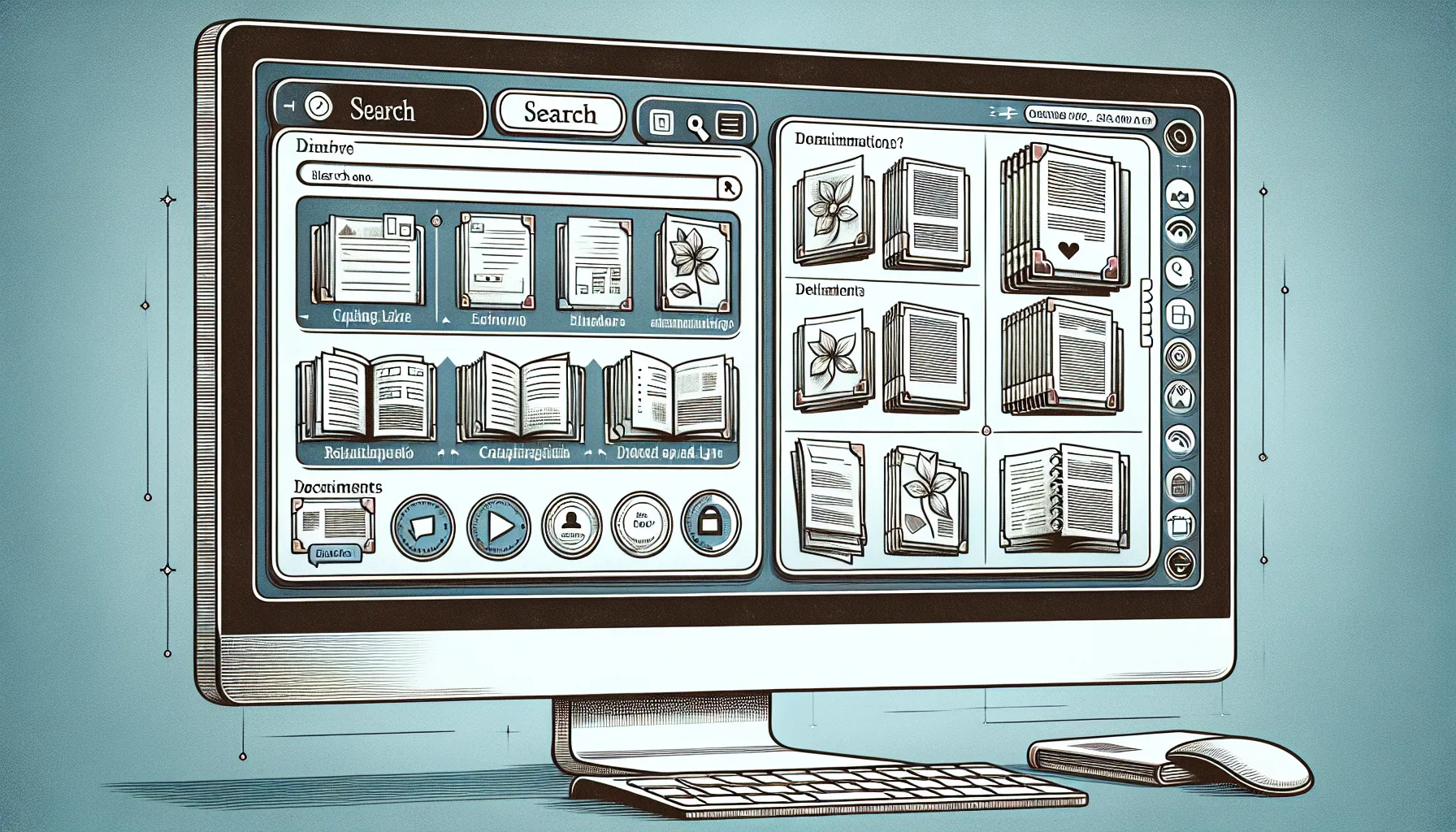Welcome to this comprehensive IELTS Reading practice test focusing on “The role of libraries in preserving cultural knowledge.” This topic not only tests your reading comprehension skills but also expands your understanding of the vital role libraries play in safeguarding our cultural heritage. Let’s dive into the passages and questions that mirror the actual IELTS exam structure.
Passage 1 (Easy Text): The Guardians of Knowledge
Libraries have long been considered the cornerstones of cultural preservation, serving as repositories of human knowledge and creativity. These institutions play a crucial role in safeguarding our collective memory and ensuring that future generations have access to the wealth of information accumulated over centuries.

In recent years, libraries have evolved beyond their traditional role as book lenders. They now serve as multifaceted cultural centers, offering a wide array of services and resources. From hosting community events to providing access to cutting-edge technology, libraries have become dynamic hubs of learning and cultural exchange.
One of the most significant contributions of libraries to cultural preservation is their commitment to digitization projects. By converting rare books, manuscripts, and other historical documents into digital formats, libraries are ensuring that these valuable resources are protected from physical deterioration and made accessible to a global audience.
Questions 1-5
Do the following statements agree with the information given in the passage? Write
TRUE if the statement agrees with the information
FALSE if the statement contradicts the information
NOT GIVEN if there is no information on this
- Libraries only focus on lending books to the public.
- Digitization projects help protect valuable resources from physical damage.
- Libraries host community events as part of their expanded role.
- All libraries worldwide have adopted digital archiving technologies.
- Libraries are considered essential for preserving cultural knowledge.
Questions 6-10
Complete the sentences below. Choose NO MORE THAN TWO WORDS from the passage for each answer.
- Libraries are often referred to as __ of cultural preservation.
- These institutions ensure that __ generations can access accumulated knowledge.
- Modern libraries now function as __ cultural centers.
- Libraries have transformed into __ of learning and cultural exchange.
- The conversion of historical documents into digital formats is known as __ projects.
Passage 2 (Medium Text): The Evolution of Library Services
The role of libraries in preserving cultural knowledge has undergone a significant transformation in the digital age. While traditional functions such as book lending and archival storage remain important, libraries have expanded their services to meet the evolving needs of their communities and to address the challenges posed by rapid technological advancements.
One of the most notable developments is the integration of digital technologies into library services. Many libraries now offer e-book lending, online databases, and digital archives, allowing patrons to access a vast array of resources from anywhere with an internet connection. This shift has not only increased accessibility but has also played a crucial role in preserving fragile or rare documents that might otherwise be lost to time.
Libraries have also become important centers for digital literacy education. By offering workshops and classes on topics such as internet research, digital content creation, and online safety, libraries are ensuring that communities have the skills necessary to navigate and contribute to our increasingly digital world. This educational role is particularly vital for bridging the digital divide and preserving diverse cultural voices in the online sphere.
Furthermore, many libraries have embraced their role as cultural hubs by expanding their programming to include art exhibitions, concerts, and lectures. These events not only celebrate local culture but also provide a platform for cultural exchange and dialogue. By fostering a sense of community and promoting cultural understanding, libraries contribute to the preservation of intangible cultural heritage.
The preservation of indigenous knowledge and languages has become another key focus for many libraries. Through specialized collections, oral history projects, and partnerships with indigenous communities, libraries are working to ensure that traditional knowledge and endangered languages are documented and made accessible for future generations.
Questions 11-15
Choose the correct letter, A, B, C, or D.
-
According to the passage, how have libraries adapted to the digital age?
A) By completely replacing physical books with e-books
B) By integrating digital technologies while maintaining traditional services
C) By focusing solely on digital literacy education
D) By eliminating all non-digital services -
What role do libraries play in digital literacy?
A) They provide free internet access only
B) They offer workshops and classes on various digital skills
C) They exclusively teach coding and programming
D) They produce digital content for patrons -
How do libraries contribute to cultural preservation beyond storing books?
A) By organizing cultural events and exhibitions
B) By restricting access to cultural materials
C) By focusing only on mainstream culture
D) By charging for cultural programming -
What is mentioned as a focus for many libraries regarding indigenous cultures?
A) Translating all indigenous texts into English
B) Preserving indigenous knowledge and languages
C) Replacing indigenous stories with modern narratives
D) Limiting access to indigenous materials -
Which of the following is NOT mentioned as a way libraries preserve cultural knowledge?
A) Digital archiving
B) Community events
C) Educational workshops
D) Publishing original research
Questions 16-20
Complete the summary below. Choose NO MORE THAN TWO WORDS from the passage for each answer.
Libraries have evolved to become more than just book repositories. They now offer (16) __ lending and access to online databases. Many libraries provide education in (17) __, helping communities navigate the digital world. As (18) __, libraries host various cultural events. They also focus on preserving (19) __ and languages through specialized projects. These efforts contribute to the preservation of (20) __ cultural heritage.
Passage 3 (Hard Text): The Challenges and Future of Cultural Preservation in Libraries
The role of libraries in preserving cultural knowledge faces numerous challenges in the 21st century, necessitating innovative approaches and strategic adaptations. As custodians of our collective memory, libraries must navigate a complex landscape shaped by technological advancements, changing user expectations, and the ever-present threat of cultural loss.
One of the most pressing challenges is the preservation of digital content. While digitization offers unprecedented access to information, it also presents unique preservation challenges. Digital formats can become obsolete rapidly, and there is a constant need to migrate data to new storage systems. The concept of “bit rot” – the gradual decay of digital information over time – poses a significant threat to long-term preservation efforts. Libraries must invest in robust digital preservation strategies, including regular data integrity checks, format migration, and the creation of redundant copies across geographically dispersed locations.
The curation of born-digital content presents another significant challenge. With an increasing amount of cultural production occurring in digital formats – from social media posts to digital art installations – libraries must develop new methodologies for collecting, cataloging, and preserving these ephemeral forms of cultural expression. This requires not only technological solutions but also a reevaluation of collection development policies and the very definition of what constitutes cultural heritage.
Libraries also face the challenge of balancing access with preservation. While the digitization of rare or fragile materials can increase access, it may also reduce the perceived value of original artifacts. There is an ongoing debate about the role of physical collections in an increasingly digital world, with some arguing for the importance of materiality in understanding cultural heritage. Libraries must strike a delicate balance between providing wide access through digital means and maintaining the integrity and value of physical collections.
The preservation of indigenous and minority cultures presents unique ethical and practical challenges. Libraries must navigate complex issues of ownership, cultural sensitivity, and intellectual property rights when working with indigenous materials. Collaborative approaches that involve indigenous communities in the preservation process are essential, as is the development of culturally appropriate access protocols.
Looking to the future, libraries are exploring innovative technologies to enhance their preservation efforts. Artificial intelligence and machine learning algorithms are being employed to improve metadata creation, content analysis, and digital preservation workflows. Blockchain technology is being investigated as a potential solution for ensuring the authenticity and provenance of digital cultural assets.
The concept of “participatory archives” is gaining traction, where communities are actively involved in the creation and curation of cultural collections. This approach not only enriches the diversity of preserved materials but also fosters a sense of shared ownership and responsibility for cultural heritage.
As libraries continue to evolve, their role in preserving cultural knowledge will remain critical. By embracing new technologies, fostering community engagement, and addressing ethical challenges, libraries can ensure that our cultural heritage remains accessible and relevant for generations to come.
Questions 21-26
Complete the sentences below. Choose NO MORE THAN THREE WORDS from the passage for each answer.
- The gradual decay of digital information over time is known as __.
- Libraries must develop new methods for collecting and preserving __ content.
- There is a debate about the role of __ in an increasingly digital world.
- Libraries must navigate issues of __ when working with indigenous materials.
- __ are being used to improve metadata creation and content analysis.
- The concept of __ involves communities in the creation of cultural collections.
Questions 27-30
Choose FOUR letters, A-G.
Which FOUR of the following challenges for libraries in preserving cultural knowledge are mentioned in the passage?
A) Lack of funding for new technologies
B) Preservation of digital content
C) Balancing access with preservation
D) Training staff in new technologies
E) Curation of born-digital content
F) Competition from online bookstores
G) Preservation of indigenous and minority cultures
Questions 31-35
Do the following statements agree with the claims of the writer in the passage? Choose
YES if the statement agrees with the claims of the writer
NO if the statement contradicts the claims of the writer
NOT GIVEN if it is impossible to say what the writer thinks about this
- Digital preservation is more straightforward than preserving physical artifacts.
- The digitization of rare materials always increases their perceived value.
- Collaborative approaches with indigenous communities are essential for preserving their cultural materials.
- Blockchain technology has been proven to be the best solution for ensuring the authenticity of digital cultural assets.
- The role of libraries in preserving cultural knowledge will become less important in the future.
Answer Key
Passage 1
- FALSE
- TRUE
- TRUE
- NOT GIVEN
- TRUE
- cornerstones
- future
- multifaceted
- dynamic hubs
- digitization
Passage 2
- B
- B
- A
- B
- D
- e-book
- digital literacy
- cultural hubs
- indigenous knowledge
- intangible
Passage 3
- bit rot
- born-digital
- physical collections
- ownership
- Artificial intelligence
- participatory archives
27-30. B, C, E, G - NO
- NO
- YES
- NOT GIVEN
- NO
This comprehensive IELTS Reading practice test on “The role of libraries in preserving cultural knowledge” provides valuable insights into the evolving functions of libraries in our digital age. By mastering these passages and questions, you’ll enhance your reading skills and gain a deeper understanding of cultural preservation strategies. Remember to explore the historical significance of ancient libraries for additional context, and consider how the internet is changing the way we learn about culture to broaden your perspective on this topic. Good luck with your IELTS preparation!
